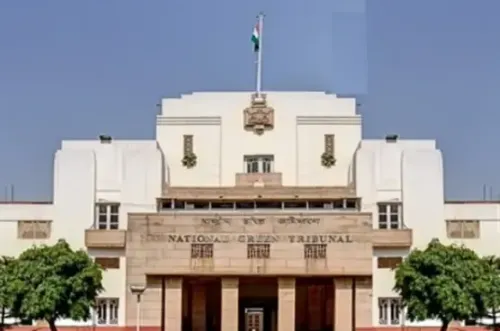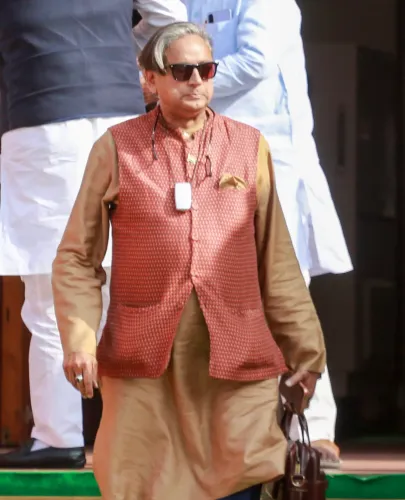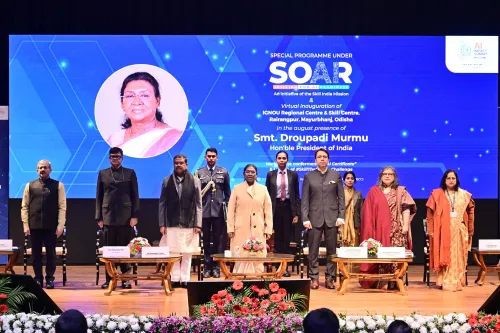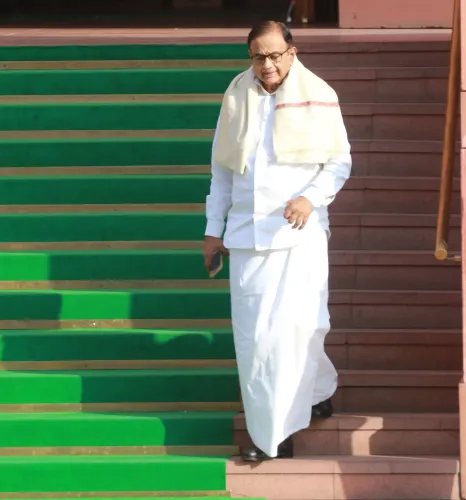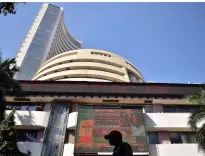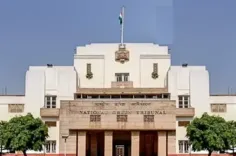What Major Developments Occurred When Rajnath Singh Inaugurated the New DPSU Bhavan?
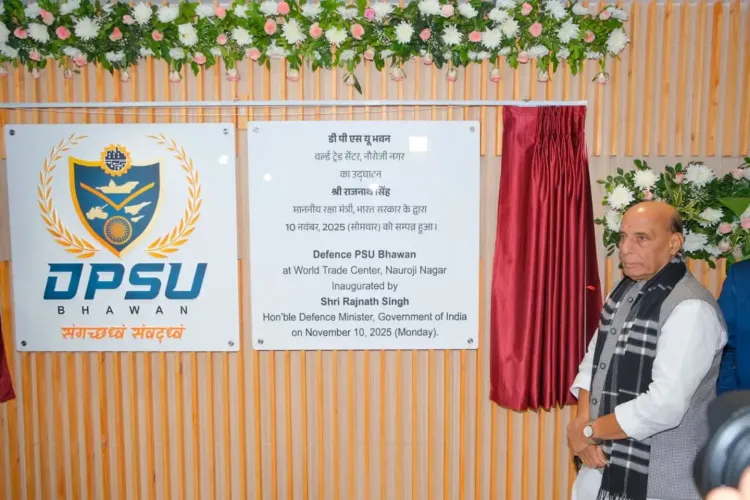
Synopsis
Key Takeaways
- Inauguration of DPSU Bhavan enhances collaboration.
- Three major MoUs signed to support modernization.
- Focus on self-reliance in defence manufacturing.
- Introduction of SWAYAM for sustainable practices.
- Recognition of Miniratna PSUs for empowerment.
New Delhi, Nov 10 (NationPress) On Monday, Defence Minister Rajnath Singh officially opened the advanced DPSU Bhavan in New Delhi, witnessing the signing of three pivotal Memorandums of Understanding (MoUs) among defence public sector undertakings, reinforcing the commitment to collaboration and self-sufficiency.
The minister honored four defence PSUs for receiving Miniratna status.
During the event, Hindustan Aeronautics Limited (HAL) and Bharat Dynamics Limited (BDL) entered into agreements with Yantra India Limited (YIL) to bolster its modernization initiatives and set up a 10,000-ton Forging Press facility. This initiative is crucial in diminishing reliance on imports for aluminum alloys utilized in the defence and aerospace sectors. HAL has pledged an interest-free advance of Rs 435 crore to YIL, while BDL will ensure a continuous workload of up to 3,000 metric tonnes over a decade.
The third MoU focused on establishing a Metal Bank at MIDHANI, essential for guaranteeing the steady supply of critical raw materials for national defence projects.
The Defence Minister also introduced several research and development initiatives, including the HAL R&D Manual, which aims to bolster the R&D ecosystem through digitization, intellectual property creation, and partnerships with Indian academia. The R&D Roadmap of DPSUs encompasses ongoing projects and future plans, symbolizing a transition from licensed production to indigenous design and development, a significant move towards technological self-sufficiency in defence.
In a substantial advance towards eco-friendly defence manufacturing, Rajnath Singh launched SWAYAM - Sustainable and Green Defence Manufacturing. This extensive compilation highlights the green transition within DPSUs, based on the Comprehensive Energy Efficiency Action Plan (CEEAP) 2023. SWAYAM outlines strategies for improving energy efficiency, increasing the use of renewable energy, and cutting down carbon emissions throughout the defence production landscape. Enhanced by digital resources like the SWARNA Dashboard and DPSU Efficiency Index, the initiative demonstrates the government's dedication to merging sustainability with self-reliance.
The minister presided over a detailed review meeting of Defence Public Sector Undertakings (DPSUs) at the newly inaugurated DPSU Bhawan, located in World Trade Centre, Naoroji Nagar.
The meeting celebrated the achievements of four DPSUs - Munitions India Limited (MIL), Armoured Vehicles Nigam Limited (AVNL), India Optel Limited (IOL), and Hindustan Shipyard Limited (HSL) - for attaining Miniratna (Category-I) status.
The Defence Minister emphasized that the newly acquired Miniratna status will empower these four DPSUs to expand their capacities, modernize operations, and explore new ventures and collaborations, including joint ventures and mergers with both public and private sectors.
While addressing the audience, he praised the DPSUs for their unwavering contributions towards fortifying India's defence manufacturing framework and promoting the vision of a self-reliant India. "All our 16 DPSUs are essential pillars of the country’s self-reliance. Their exemplary performance during operations like Operation Sindoor reflects the reliability and capability of our indigenous platforms," he remarked, congratulating them for their ongoing commitment and excellence.
Rajnath Singh emphasized that in the financial year 2024-25, India achieved defence production valued at Rs 1.51 lakh crore, with DPSUs contributing 71.6% of the total. Defence exports reached Rs 6,695 crore, illustrating global confidence in India's indigenous systems. "This clearly indicates that ‘Made in India’ defence products are gaining international acclaim," he stated.
To maintain this momentum, the Raksha Mantri urged all DPSUs to emphasize the rapid indigenization of critical technologies, comprehensive R&D, enhancement of product quality, timely deliveries, and a strategic approach to boost exports. He instructed the DPSUs to outline clear indigenization and R&D roadmaps with measurable objectives to be presented during the next review meeting. "On behalf of the Government, I assure you that any special intervention or assistance needed will be provided promptly," he affirmed.
The Raksha Mantri also recognized IOL and Bharat Electronics Limited (BEL) for achieving 100% green energy utilization. IOL transitioned entirely to renewable energy as of September 2025, leading to a reduction of 8,669 tonnes of CO2 emissions and saving Rs 26.36 lakh in the initial quarter of FY 2025-26. BEL, a Navratna DPSU, became the first to reach the RE100 milestone in January 2025, eliminating its Scope-2 emissions from 15,000 metric tonnes to absolute zero, a significant advancement towards its Net Zero objectives.


